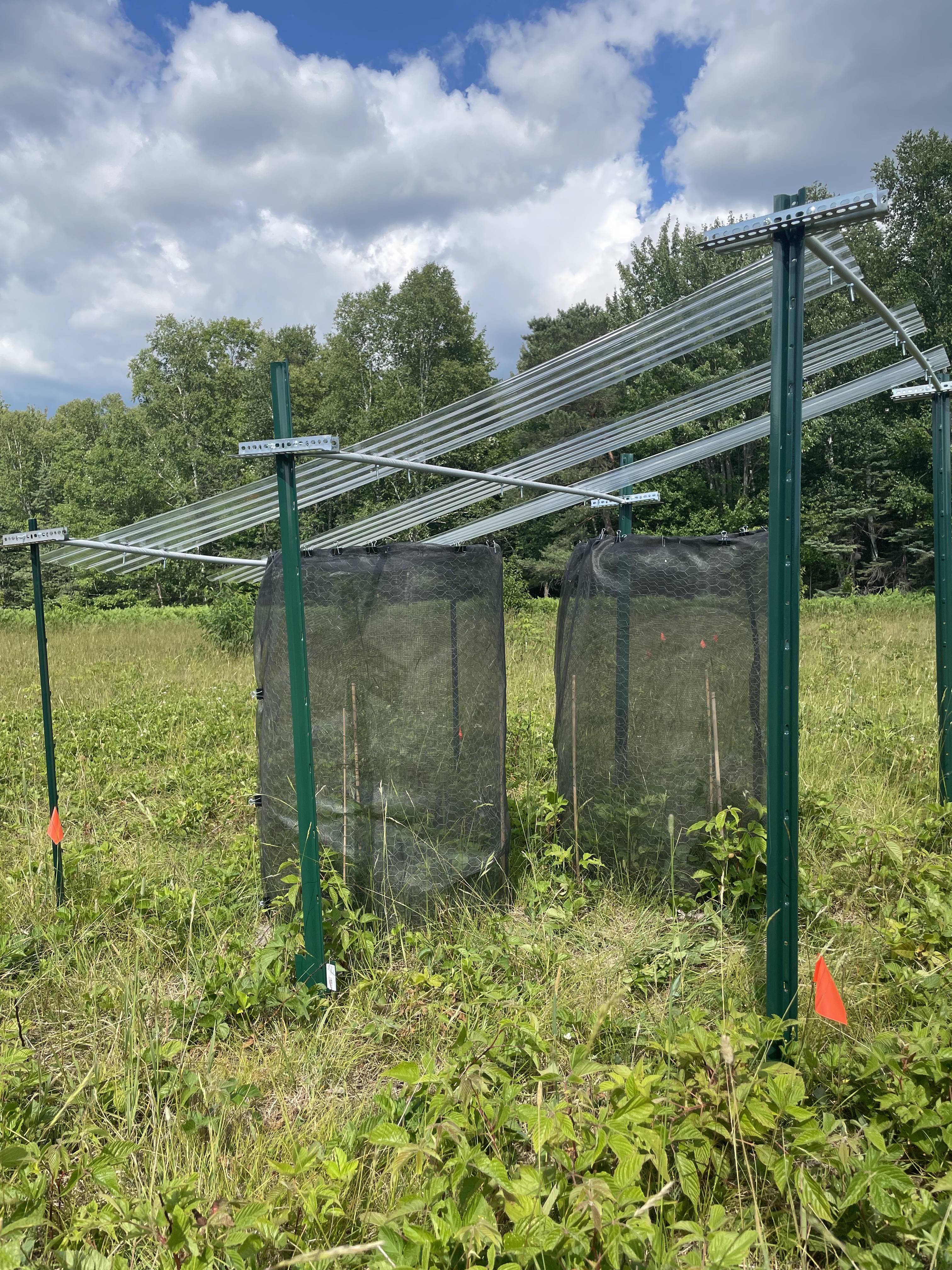Julia N. Eckberg
Do insect herbivores affect the compensatory response of the rest of the plant community following dominant plant species loss?
From 2021-2025, with the help of several University of Michigan undergraduates, I led a long-term field experiment at Matthaei Botanical Gardens in Ann Arbor investigating the combined and potentially interactive effects of the dominant plant species Solidago canadensis (Canada goldenrod) and insect herbivores on plant community structure and ecosystem function. I quantified the independent and combined effects of dominant species removal and insect reduction on a range of above- and below-ground characteristics, including:
- Soil microclimate and light availability
- Plant functional traits and species richness
- Aboveground productivity and decomposition rate of soil organic matter
- Soil microclimate and light availability
After maintaining this field experiment over multiple growing seasons, I then tested whether insect herbivores constrain the compensatory response of the rest of the plant community following S. canadensis removal and whether S. canadensis and insect herbivores influence the temporal stability of plant richness and biomass.
What are the combined and interactive effects of precipitation and insect herbivory on plant community structure and ecosystem function?
At the University of Michigan Biological Station, I designed and implemented a field experiment to investigate the effects of altered precipitation and insect herbivory on plant community structure and productivity in an old-field ecosystem.To simulate future climate conditions, I constructed rainout shelters that reduced precipitation by 50%. Beneath these shelters, I built insect enclosures to manipulate herbivore presence and density. This fully factorial design allowed me to test the independent and interactive effects of precipitation change and insect herbivory on:
- Plant community composition
- Functional diversity
- Aboveground biomass

What are the effects of nitrogen fertilization, warming, and vertebrate grazing on plant functional traits across an altitudinal gradient in an alpine ecosystem?
As part of the Plant Functional Traits Course, I had the opportunity to work at the THREE-D experiment site in Aurland, Norway. In collaboration with researchers around the world, we developed a plant functional trait collection strategy that would allow us to quantify the effects of mammalian grazing, nitrogen addition, and warming on the community weighted mean of plant functional traits and plant functional diversity.